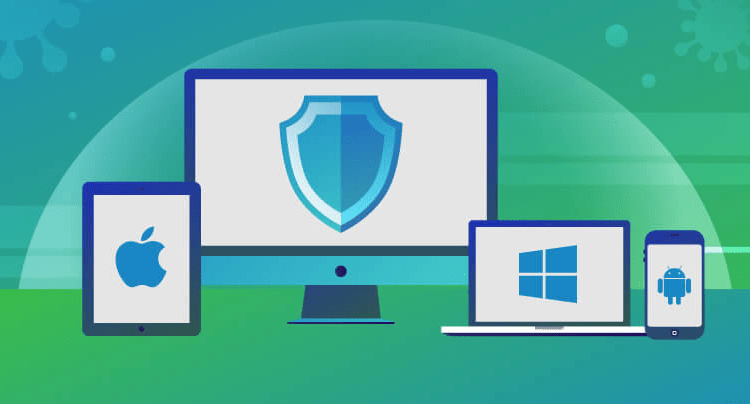For any modern company or private entrepreneur, protecting business reputation on the Internet is becoming an important stage of work these days. It is unlikely that now there are customers who do not use the Internet, from which you can sometimes learn much more than a business partner would like.
Why is online reputation important?
Search engines have become universal assistants in the process of searching for information of interest. It is not surprising, therefore, that a potential client, before taking money to the bank, choosing a hairdresser or a tattoo parlor, will definitely look into the network, type in the search engine the name of the organization of interest and receive a lot of information, sometimes completely undesirable.
The search engine can provide the following data to the user’s request:
- a link to the organization’s website;
- sites with reviews;
- social networks;
- forums;
- reference books.
Users discuss the company’s products and services on these sites and almost always in a negative light. Moreover, this does not mean that this company works carelessly. Everything is much simpler – a satisfied client does not care to pour out thanks on the Internet, he simply does not have the motivation for this. Another thing is dissatisfied customers, they have something to motivate! From this it becomes clear that protecting your business reputation on the Internet is very important for the success and further development of your business.
What specialists are needed to protect the reputation?
Internet reputation is reflected not only in forums and reviews, but is also present in the form of informational noise, articles in the media, competent work of a specialist who can level the shaft of negativity, wrap it up and process it in such a way that it can even become positive. But such tasks can only be handled by experienced and qualified specialists, which include:
- journalists;
- copywriters;
- psychologists;
- lawyers;
- programmers.
It must be borne in mind that these specialists are not only strong in their professions, they specialize in correcting their reputation on the Internet, and this area is quite new not only in Russia, but also in the rest of the world.
Online reputation protection video
Versatility of reviews
Online reviews are really needed and important. All the information contained there about any company can be roughly divided into:
- negative;
- positive;
- neutral.
Positive information is most often grouped on the company’s website, in customer testimonials or news feeds from the media. True, positive customer reviews are very few, especially when compared with negative ones. This is quite natural – people take the high quality of services for granted, which does not even need gratitude, but deviations from the standard quality instantly cause an explosion of discontent. Neutral information is present mainly in catalogs and reference books. It does not carry a special reputation load, but it is easy to transform it into a positive one. Especially since good things never happen.
Neutralization of the negative
When it comes to protecting reputation on the Internet, then neutralizing the negative in it is the most multifaceted and interesting task. It is clear that negative reviews are the basis of negativity, but they are not the only ones. Also may be assessed:
- negative social media posts;
- posts in LiveJournal and blogs;
- whole branches of negative discussions deployed on the forums;
- articles in the media containing unflattering information about the brand or the company itself.
It is imperative to work with each type of these negative materials, remembering that before applying for a purchase or service, a modern buyer can carefully “scroll" the Internet and will most likely stumble upon information of a very different, but more often negative tone.
Under the leveling of the negative means:
To neutralize the negative about the company, you need to do the following:
- remove negative reviews if possible;
- post positive reviews, crowding out the negative;
- involve a company representative, brand advocates, opinion leaders;
- create positive information noise.
As part of the protection of Internet reputation, the most important part of the work has now become precisely the fight against negativity. One of the confirmations of this is the rapid progress of SERM not only in the world, but also in our country.
On the other hand, by removing negative reviews on the World Wide Web, it is possible to quickly and most effectively act on unwanted information. But in addition to the actual elimination of negative information, it is important to take additional measures:
- publish positive reviews about the company;
- to strengthen representative activity;
- attract third-party forces – trolls or users with authority.
Removal of negative information
It is also a fairly effective method as part of the online reputation retouching work. What does this mean? It seems quite logical that when you find a negative, you just need to delete it. But often this is more difficult to do than to use its displacement. The negativity ousted from the first pages becomes almost invisible to a potential partner, who, of course, tried to make inquiries about the company on the Internet before making contact. This method should be used especially carefully when managing the reputation of online stores.
When does the repression of negativity become justified? It is possible for specialists to manage the results of issuance, although this is not easy. This task becomes relevant in the following cases:
- if there are negative links at the beginning of the search results list, in other words, the search engine offers to refer to sites with negative information (articles in the media, discussions, reviews, slander);
- if at the beginning of the list of search results there are few links with positive or at least neutral information.
Here it is important to push the negative beyond the second page of results, because, according to statistics, the vast majority of users are satisfied with the first two pages in the issue.



